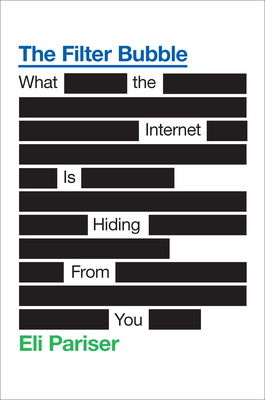~~~~~~~~~~~~~
First, I'd like to reflect on the Canonical Text wiki page. I decided to read the wiki page written by Diane, James, and Wil. They did a really great job of presenting Remediation: Understanding New Media by Jay David Bolter and Richard Grusin.I liked how they started by explaining how "new media" isn't really new at all, but it in fact builds upon what already exists - or, as they put it, "old media, to avoid becoming stale and obsolete, adapts features of new media and improves as a result of new media's influence. What makes new media 'new' is the particular way in which it reconstitutes the elements of the media [that] precedes it."
My favorite part about their wiki page was the chart that they developed, which looked at different forms of media, and then explained specifically what media those media were remediating, as well as what logic was being used to create the new experience. The two forms of logic were immediacy and hypermediacy, which the group also defined in their wiki. I found an interesting article called "Immediacy, Hypermediacy, and Remediation" from a blog called Time Barrow: Contemplating Digital Orality, which talks about how Online Video Conversations (OVC) could be yet another type of media that could be added to that chart.
I'm really interested in how things are related to each other (and when I say things, I mean literally anything - I think it's cool to trace relationships between things whether it is language, living beings, media, whatever...), so I definitely have added this book to my reading list.
~~~~~~~~~~~~~
Compared to the first two texts I read for this course, this almost felt like light reading. Also, I'm reallty interested in the topic of this text, which is the effect of social media on society (and vice versa). The main concern of The Filter Bubble is how personalization of the internet could potentially affect people's behavior and knowledge, and how the push to monetize the internet based on people's behavior could threaten the original purpose of the internet.
The first 1/3 of The Filter Bubble by Eli Pariser has been fascinating. I am a extremely regular user of the internet (...okay, I'm addicted), and by the time I finished reading just the introduction of this text, I found explanations for things I have been noticing online, particularly on social networking sites. For example, certain ads repeatedly pop up on different sites across the Internet.
INTRODUCTION
The filter bubble can be defined as a "unique universe of information" that is created by "prediction engines," which are "new generations of Internet filters [that look] at the things you seem to like." (9)
There are three dynamics of the Filter Bubble (9):
1) You are alone in it.
2) It is invisible.
3) You don't choose to enter the filter bubble.
One effect of the filter bubble is attention crash, which is defined "as the cost of communication over large distances and to large groups of people has plummeted, we're increasingly unable to attend to it all." (11)
Another effect of the filter bubble is that our identity often becomes defined by our behavior online as companies collect data about our likes and interests - then the filter controls the information we receive. "You're getting a free service, and the cost is information about you." (6)
Also, instead of bringing people together, we are actually becoming more fragmented. "Democracy requires a reliance on shared facts; instead we're being offeren parallel but separate universes." (5) We also suffer loses of bonding and bridging social capital. (16)
Connection to Key Terms
The first 1/3 of The Filter Bubble by Eli Pariser has been fascinating. I am a extremely regular user of the internet (...okay, I'm addicted), and by the time I finished reading just the introduction of this text, I found explanations for things I have been noticing online, particularly on social networking sites. For example, certain ads repeatedly pop up on different sites across the Internet.
INTRODUCTION
The filter bubble can be defined as a "unique universe of information" that is created by "prediction engines," which are "new generations of Internet filters [that look] at the things you seem to like." (9)
There are three dynamics of the Filter Bubble (9):
1) You are alone in it.
2) It is invisible.
3) You don't choose to enter the filter bubble.
One effect of the filter bubble is attention crash, which is defined "as the cost of communication over large distances and to large groups of people has plummeted, we're increasingly unable to attend to it all." (11)
Another effect of the filter bubble is that our identity often becomes defined by our behavior online as companies collect data about our likes and interests - then the filter controls the information we receive. "You're getting a free service, and the cost is information about you." (6)
Also, instead of bringing people together, we are actually becoming more fragmented. "Democracy requires a reliance on shared facts; instead we're being offeren parallel but separate universes." (5) We also suffer loses of bonding and bridging social capital. (16)
Connection to Key Terms
Information - "the Internet was going to democratize the world, connecting us with better information and the power to act on it." (3)
Interface - "Every technology has an interface... a place where you end and the technology begins. And when the technology's job is to show you the world, it ends up sitting between you and reality... There are lots of ways for it to skew your perception of the world." (13-14)
Reference
Pariser, Eli. The Filter Bubble: What the Internet Is Hiding from You. New York, New York: The Penguin Press, 2011. Print.


No comments:
Post a Comment